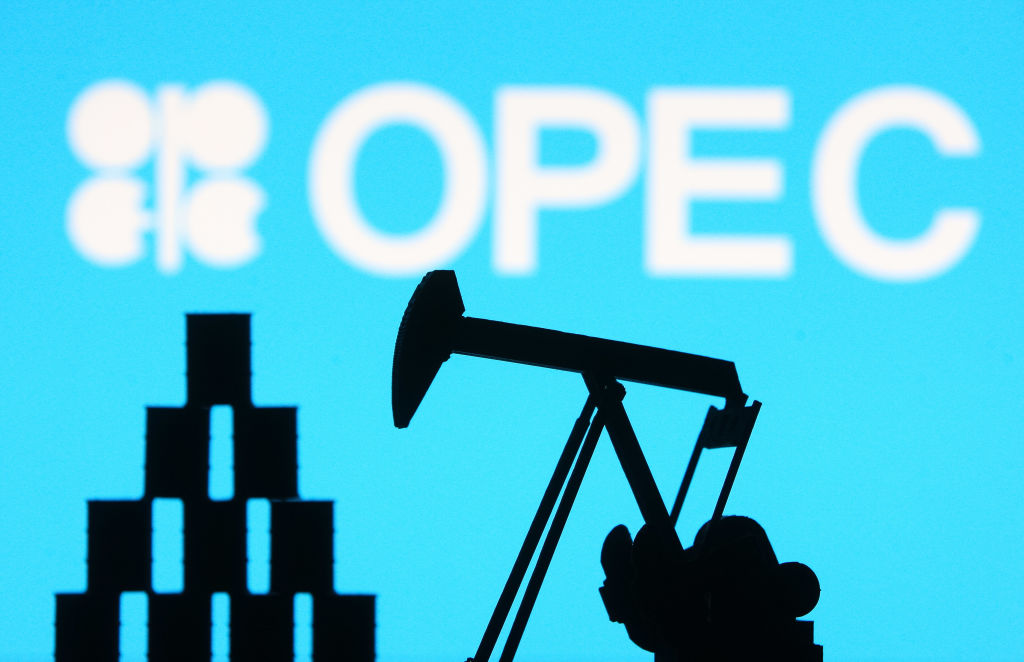In recent days, the global oil market has experienced significant volatility, reflecting the complex interplay of geopolitical tensions in the Middle East, economic concerns, and production disruptions. This turmoil highlights the delicate balance OPEC must maintain in an increasingly uncertain world.
Oil prices saw a sharp decline in the last seven days, primarily driven by fears of a potential U.S. recession and weak demand from China. However, this downward trend was partially offset by escalating tensions in the Middle East following an Israeli attack on Iranian territory.
The situation in Libya, an OPEC member, has further complicated the oil supply landscape. The country’s largest crude field, El Sharara, has nearly halted production due to ongoing political and security concerns. Reports indicate that output has dropped by at least 50,000 barrels per day to 210,000 since Saturday night.
For now, the Indian Ministry of External Affairs has issued another advisory warning residents against travel to the affected regions, underscoring the ongoing volatility in the area.
Meanwhile, the growing conflict between Israel and Iran threatens to disrupt oil supply chains significantly. Analysts warn that direct confrontation between these nations could send oil prices soaring. Iran’s potential retaliation options include disrupting shipping through the Strait of Hormuz or using proxies to target oil facilities and shipping routes in the region, which could again spike oil prices, as seen in the 2019 Houthi attacks on Saudi oil facilities.
Alternatively, Iran could widen its previously called-for embargo by Islamic members of OPEC on oil exports to Israel’s allies as well as to Israel itself.
The World Bank has already outlined scenarios for dramatic oil price increases in the event of an Iran-Israel conflict. An even more severe price shock could occur if Islamic members of OPEC were to impose an oil embargo on Israel’s allies, reminiscent of the 1973 Oil Crisis.
Despite these pressures, both the United States and China – major players with opposing interests in the Middle East – prefer lower oil prices for their own economic reasons. This shared interest may help mitigate the risk of further escalation. There are alternatives too: among the non-OPEC producers are countries like Mexico, Kazakhstan, Azerbaijan, and Malaysia. These non-OPEC producers exported a respectable 16.5 million barrels a day compared to OPEC’s 28.7 million.
OPEC+ which includes Russia too, has managed to maintain relative price stability through its cohesion, despite attempts by consuming countries to influence and reduce prices. However, the organization faces growing pressure to address environmental concerns and energy transition. OPEC Secretary General Haitham Al Ghais, in an article on the OPEC website last week, argues against the idea of energy sources being in a zero-sum game, highlighting the indispensable role of petroleum in various sectors.
He points out that oil products are essential in the electricity sector, used in components like wind turbines, solar panels, and electrical appliances. He stresses that supply chain risks for petroleum-derived products must be acknowledged and that investments in the oil industry are necessary to secure their supply.
OPEC’s stance is that all energy sources, including oil, will be needed to meet future energy demands, reduce emissions, and ensure energy security.
Recent UN Climate Change Conferences both, in the MENA region (COP27 in Egypt and COP28 in UAE) have highlighted the need for OPEC to focus on cleaner fuels. Some members, including Saudi Arabia and the UAE, are already engaged in environmental initiatives such as the Oil and Gas Climate Initiative and programs to reduce gas flaring.
As tensions in the Middle East persist and the world grapples with the urgent need for energy transition, OPEC finds itself at a crossroads. The organization must balance immediate market stability with long-term sustainability concerns, all while navigating an increasingly complex geopolitical landscape.
By: Vinod Kumar (Dubai)










